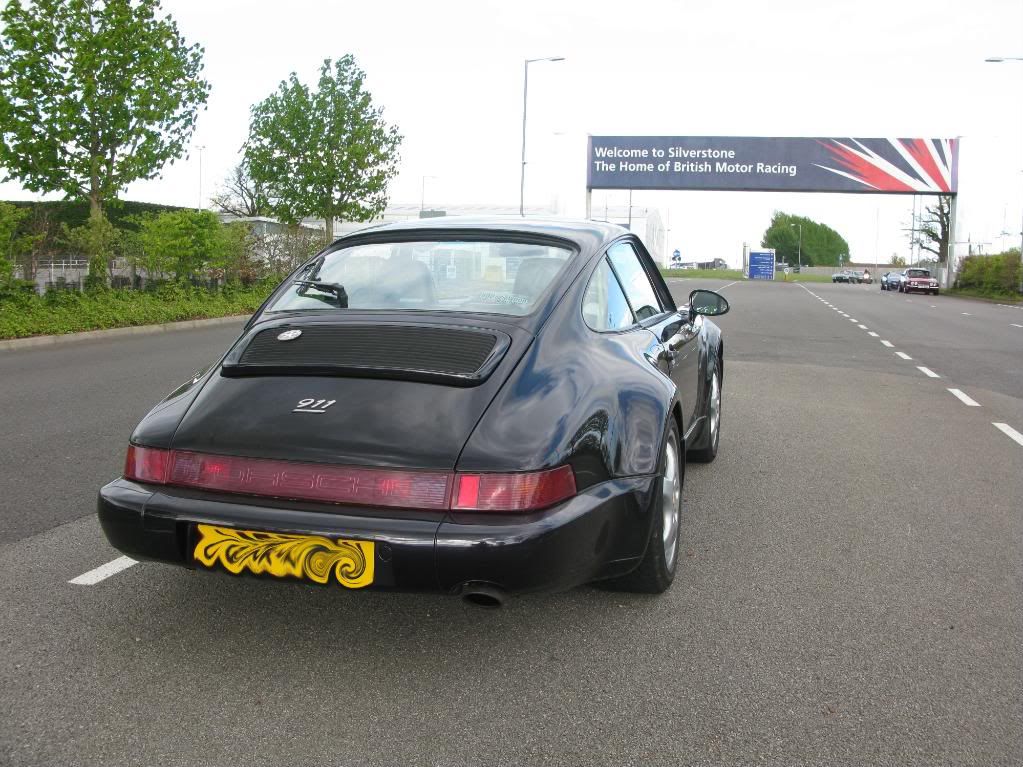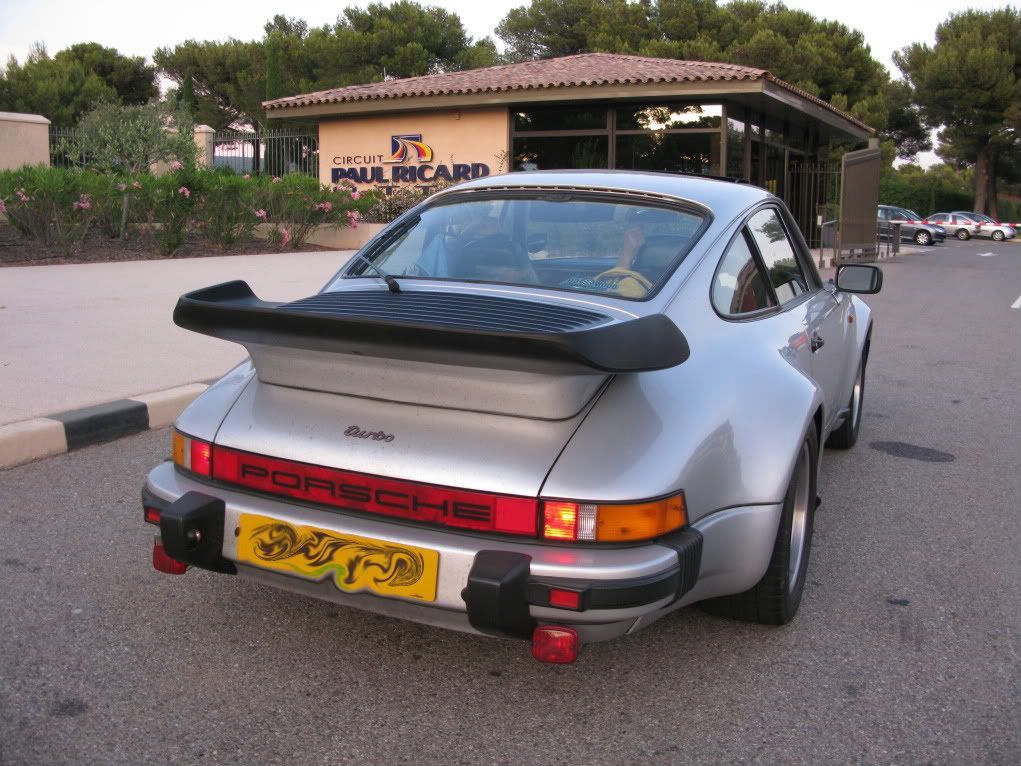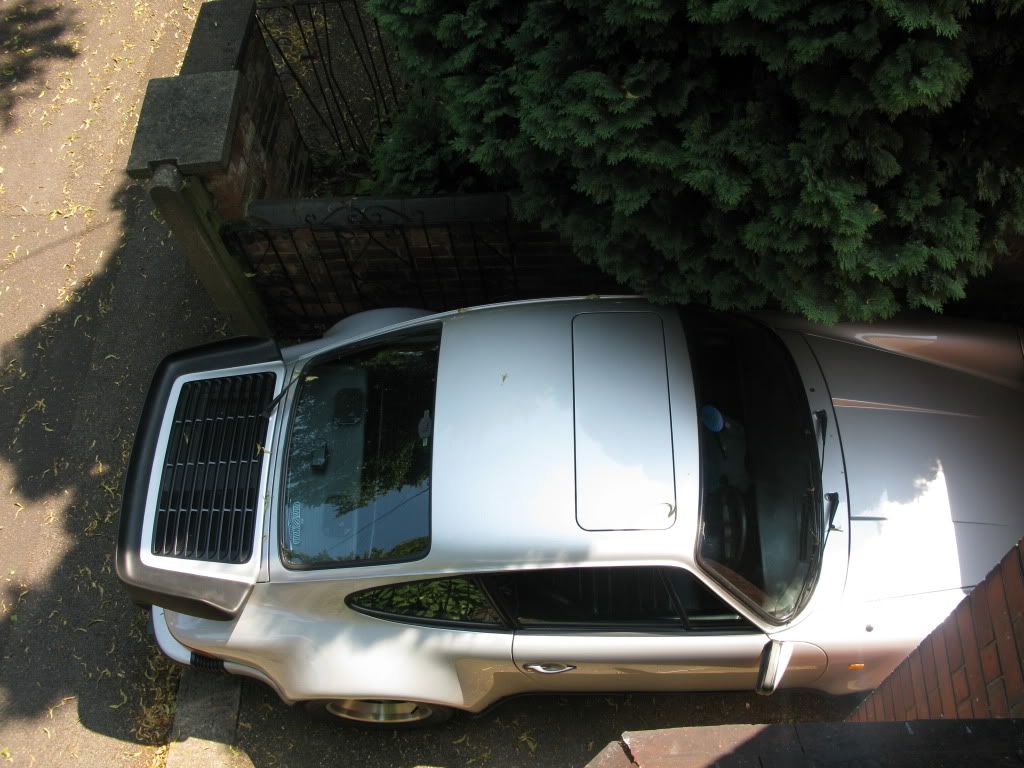I have a 4 speed 930 as well as a normally aspirated Carrera 3.o, which is a bit lighter than it rolled off the factory line.
I had a bit of a stint with a 964 widebody as well. I immediately realised my mistake: why taking a good car and make it heavier, thirstier and create more drag: the polar opposite of what Ruf does (more powerfull engine in small light body). But I was lured by the whole athena poster thing and still, people get attracted to that wide body arse end.

So the 964 jubi went and the turbo came. At least, big arse and appropriate engine (for its time).
The turbo is an either/or car: on the one hand, I lets you waiting during B road driving, and on the other hand it is king of acceleration on the motorway.
The first UK test of the Turbo 3.3 was done by Steve Cropley at Car Magazine. I suppose that the quote of “into the red in second, the turbo does 95mph” could very well be true. I understood that third goes up to 130mph, but the bottom line is that you have to drive the thing like an animal in order to make stellar progress(and to keep up with a normally aspirated Carrera).
The reality is that driving a turbo is "hard work". Driving old porsches is still "slow in, fast out." With a turbo you brake, set the bend, floor it at 2400 rpm, waitwaitwait, hit the apex at 3000 rpm, BOOST, “crickey have we arrived already?” and BRAKE.
The carrera comes on cam at 4200 and due to its 5 speeds and short 2nd and 3rd, you are pretty much "bang on" and accelerate faster in "real world" conditions.
I don't have the numbers of the Turbo 3.3 at hand, but here is a comparison test of the then new Turbo 3.o vs the Carrera 3.o.


The turbo is in my opinion not really a balls-out car: it is a comfy long distance GT. On a European Autobahn you could technically accelerate in second on the sliproad, join the motorway at 85mph, meander through the lorries, put your foot down, redline, third, get some boost, and she will do 150 mph all day long until you have reached your Berlin office. But we live in the United Kingdom, with a speed limit of 70mph. Plently of A roads are restricted to 50 mph.... This car is a bit of a anachronism.


Having said that, the way its suspension works, how it grips the road, the way you can chuck it in a bend and the way this 911 is weighted: pure magic. This driving style is far too risky for a short wheel base 911, which was the original widow maker, but when the turbo 3.3 hit the market with its bigger tie rod ends, different banana arms and 917 derived braking, it is a Porsche Package that feels just right.
Furthermore, the turbo is quiet. The exhaust noise reverberating through the woods of the peak district is a joy in my carrera 3, but the turbo intercooler package quietens things down considerably in the 930.
So, for the moment I'm using the turbo for european long hauls, the Carrera for A and B road chasing.

RE running costs:
To put it into perspective, my turbo had a 5 pence sized bubble in both sills, and was looking, 9 years after a quality restoration by Porsche Silverstone "£20k all day long after detailing the swirl marks out".
Nearly £10 k later (sills, B posts, impact bumper brackets, windows out respray, all new rubbers and lenses, suspension rebuild, brakes rebuild, gearbox set up, couple of oil lines, rubber sealing rings in flywheel, engine seals) ....
I would expect any prospective purchaser to have a professional Pre Purchase Inspection done, after the initial impressions and inspection works out.
These things can be as reliable as a beetle on the condition that you spend money on its upkeep. (which is about the polar opposite of beetle upkeep prices.)
Miss a year or three, or potter about in the village 400 miles between MOT's for a few years and you might as well hand grenade your safe deposit box. I reckon on a par with receiving the total sum of the works that needs doing.
Trouble is, these turbo's are so over engineered that they can sustain a lot of abuse. Porsche reckons that 85% of their drivers don't know how to get the max potential out of their cars -I'm in that group, btw-, let alone that the majority of the "drivers" know the difference between a good and a bad one.
Old Porsches nearly always get rescued. A turbo will always sell. After all, Porsche cars GB only imported 930 of them in the UK.
Take care,
Bert